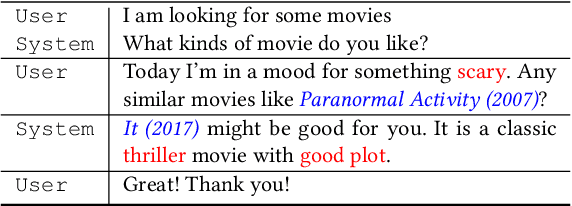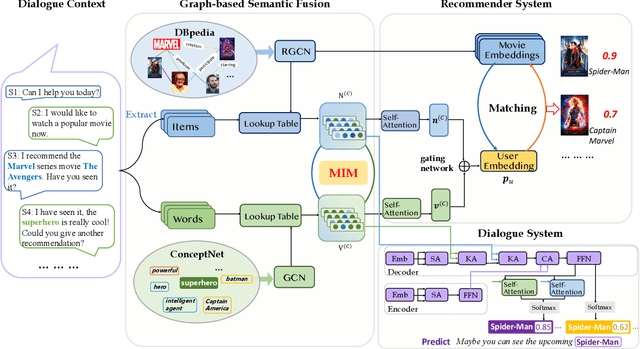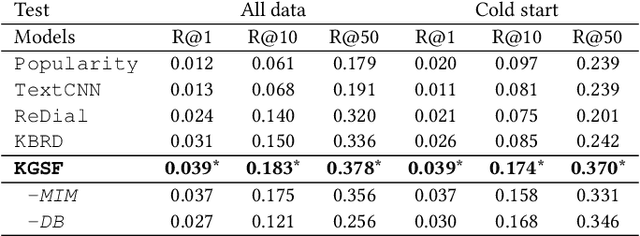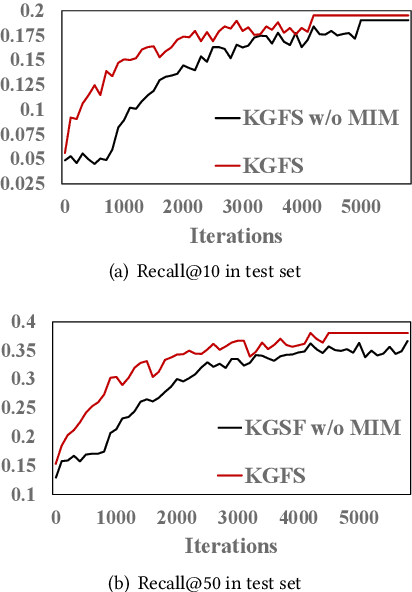Improving Conversational Recommender Systems via Knowledge Graph based Semantic Fusion
Paper and Code
Jul 08, 2020



Conversational recommender systems (CRS) aim to recommend high-quality items to users through interactive conversations. Although several efforts have been made for CRS, two major issues still remain to be solved. First, the conversation data itself lacks of sufficient contextual information for accurately understanding users' preference. Second, there is a semantic gap between natural language expression and item-level user preference. To address these issues, we incorporate both word-oriented and entity-oriented knowledge graphs (KG) to enhance the data representations in CRSs, and adopt Mutual Information Maximization to align the word-level and entity-level semantic spaces. Based on the aligned semantic representations, we further develop a KG-enhanced recommender component for making accurate recommendations, and a KG-enhanced dialog component that can generate informative keywords or entities in the response text. Extensive experiments have demonstrated the effectiveness of our approach in yielding better performance on both recommendation and conversation tasks.
 Add to Chrome
Add to Chrome Add to Firefox
Add to Firefox Add to Edge
Add to Edge